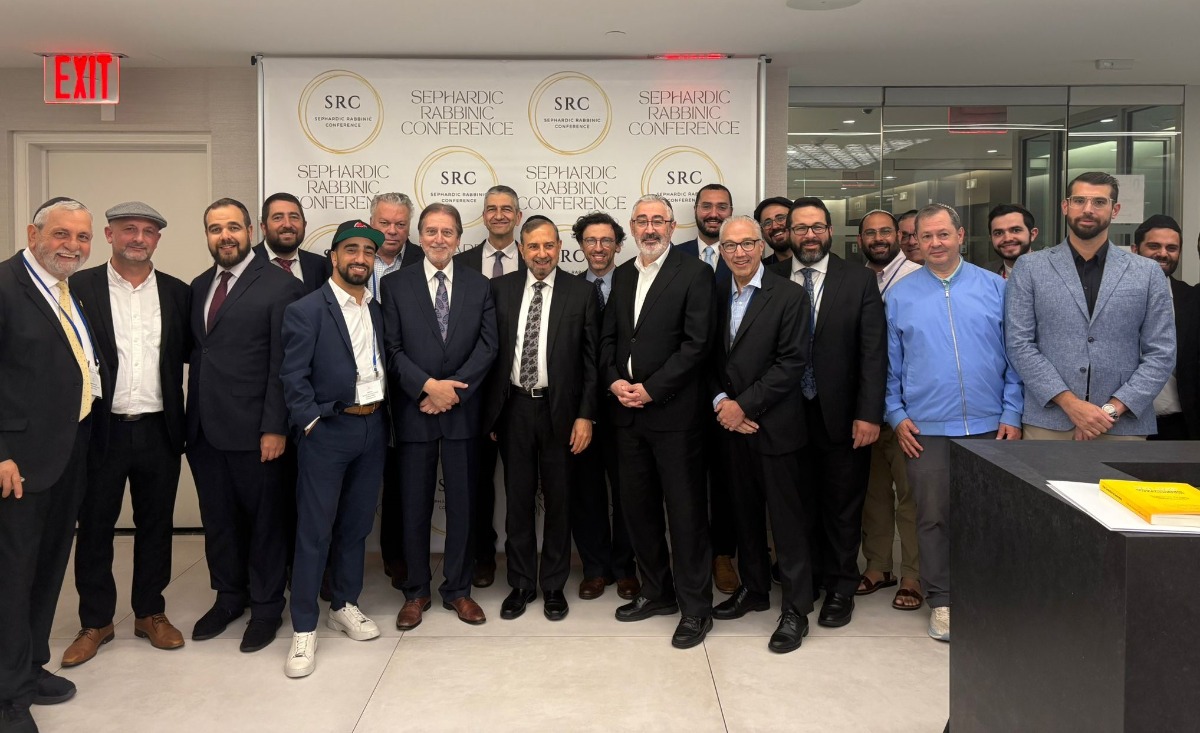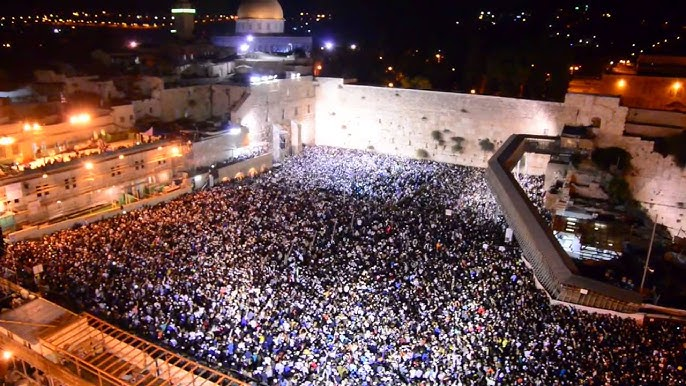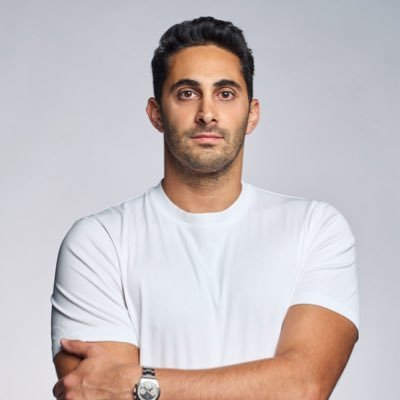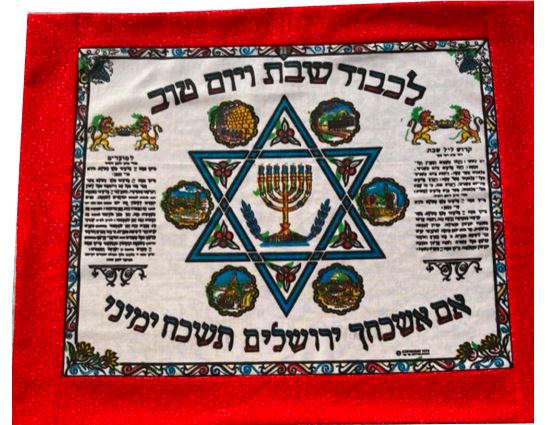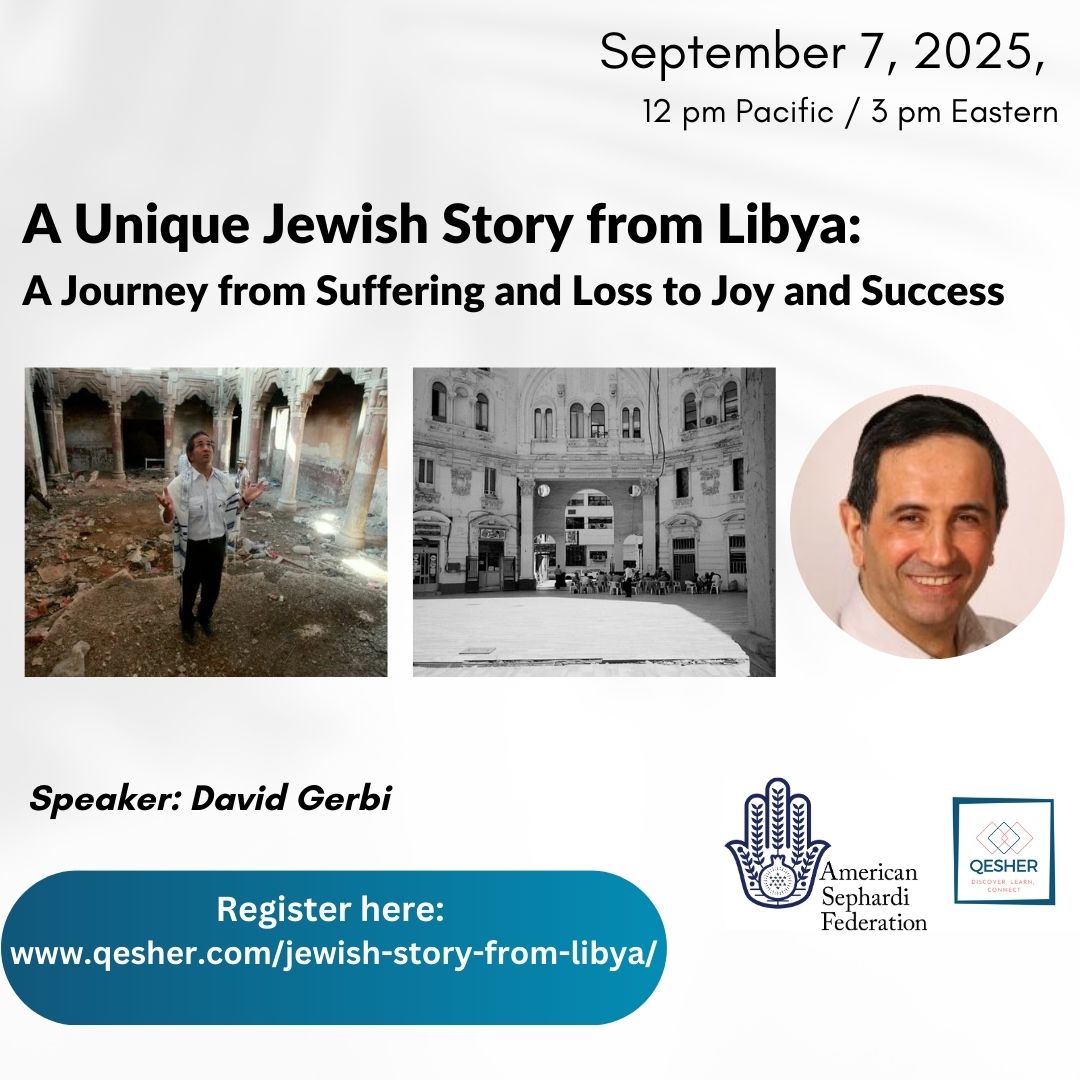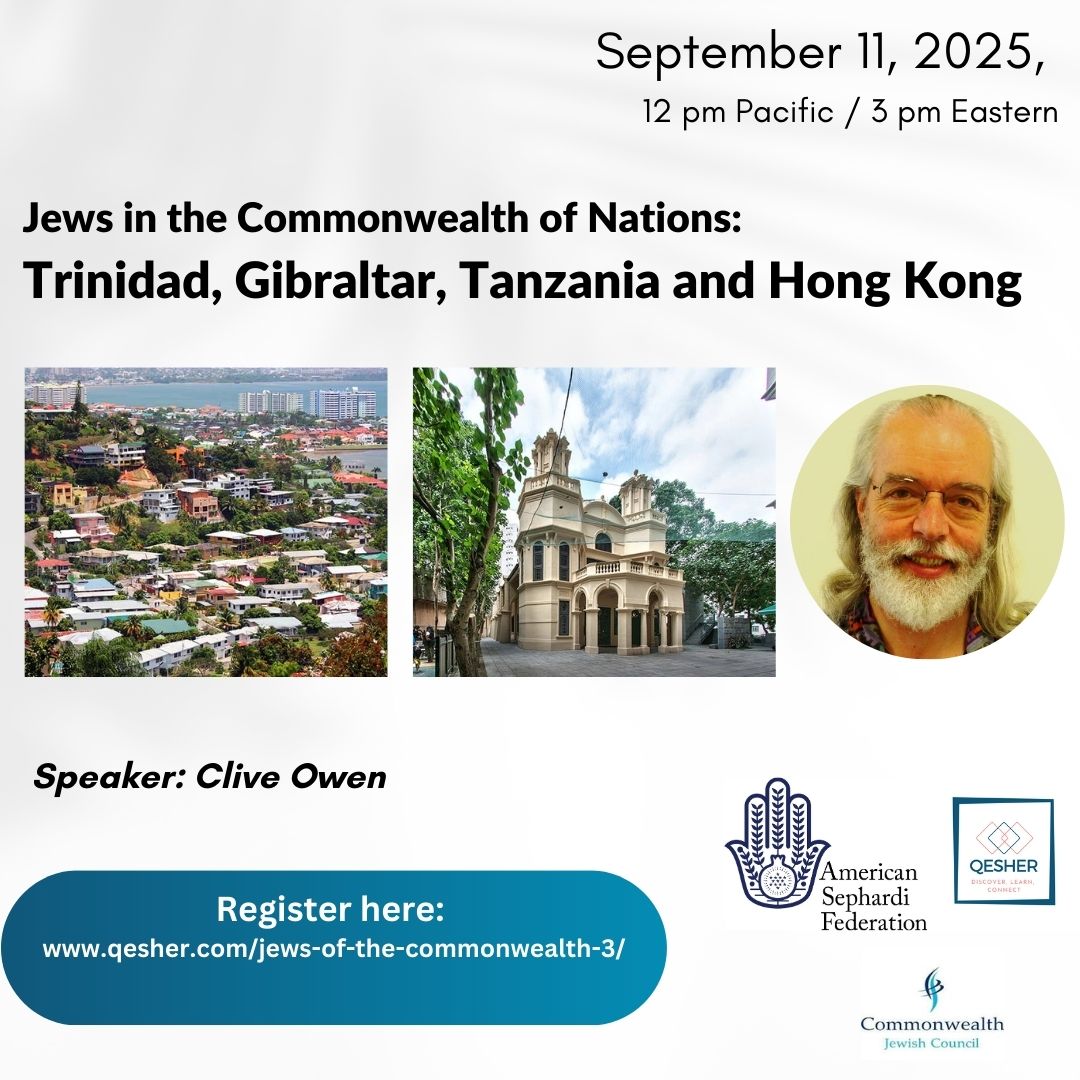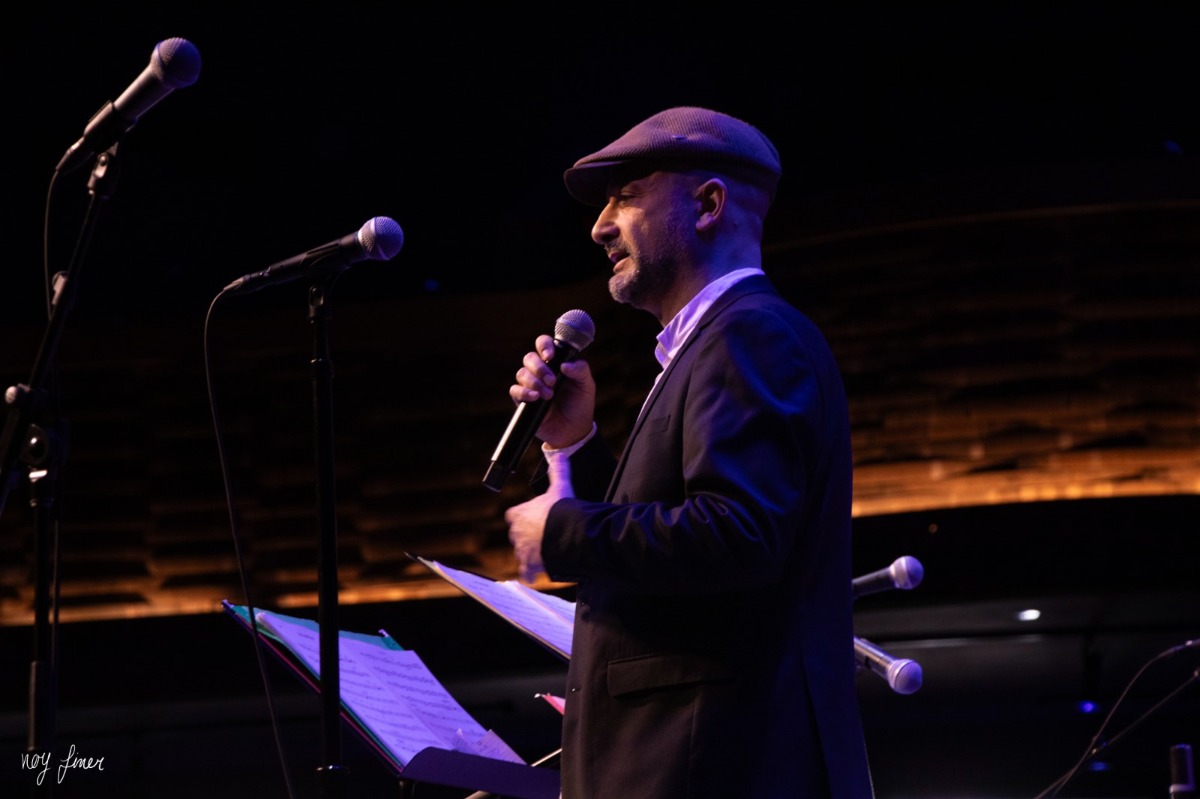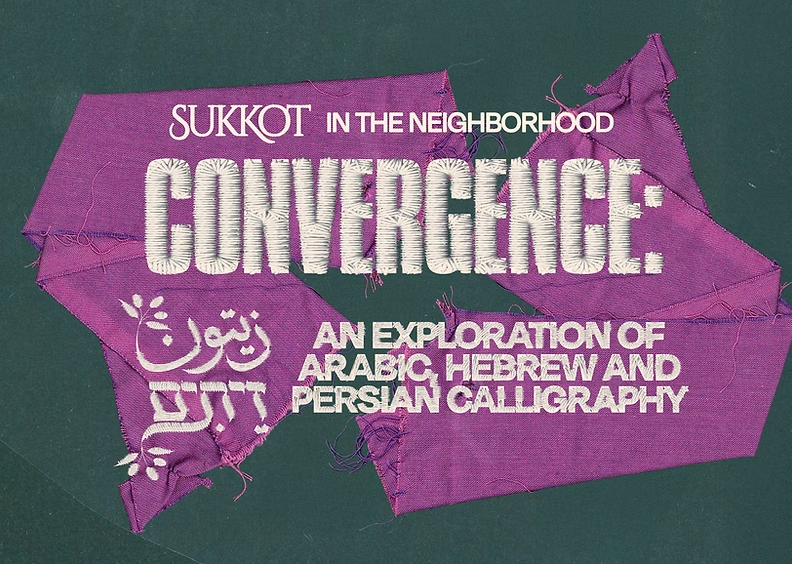In solidarity with Algerian-born French-Sephardi Superstar and friend of the ASF, Enrico Macias, whose concert in Istanbul was canceled by Turkish authorities citing the threat of protests by Islamists. Our world is being stultified, polarized, and impoverished by BDS bullies stymying cultural and economic exchanges, scholarship, and scientific research
Click here to dedicate a future issue in honor or memory of a loved one
Subscribe ◊ Upcoming Events ◊ ASF Sephardi Shop ◊ Donate ◊ Sephardi Ideas Monthly ◊ ASF IJE ◊ ASF Sephardi House ◊ Archive
The Sephardi World Weekly is made possible by Daniel Yifrach, Rachel Sally, Professor Rifka Cook, Maria Gabriela Borrego Medina, Rachel Amar, Deborah Arellano, & ASF VP Gwen Zuares!
Don’t miss the latest “Letter from the Land of Israel” written by our Director of Publications, Dr. Aryeh Tepper. A Hebrew language version of the essay, was published on the Israeli site Srugim, an influential Israeli online news website that covers news from the perspective of the religious Zionist community.
“First-Ever Sephardic Rabbinic Conference Draws Global Leaders to NYC, Launches New Era for Sephardic Education”
Photo of the Hakhamim and other Conference Participants, Orthodox Union Headquarters,10 August 2025
The inaugural Sephardic Rabbinic Conference was held in New York City on August 10–11, 2025, bringing together over 50 Sephardic rabbis and leaders from across the globe. Organized by a coalition that included The Habura, Sephardic Brotherhood of America, Orthodox Union, and American Sephardi Federation, the gathering focused on “The Future of Sephardic Education.”
Throughout the two-day summit, panels and roundtables discussed Sephardic educational institutions, youth engagement, digital Torah study, and the nurturing of future leadership. ASF’s Rabbi Elie Abadie participated in the opening panel, “Sephardic Education Today: Where Are We & Where Are We Going?” where he discussed current challenges facing Sephardic education and shared his perspective on the importance of maintaining spiritual and institutional independence. Other notable participants included Rabbi Joseph Dweck, Senior Rabbi of the S&P Sephardi Community of the United Kingdom, soon to make Aliyah to Israel, Rabbi Yamin Levy of the Maimonides Heritage Center in New York, Rabbi Yosef Bitton of the United Mashadi Community of New York, Mikveh Israel of Philadelphia’s Rabbi Emeritus Albert Gabbai and Rabbi Yosef Zarnighian, and Lisbon’s Rabbi Reuben Suiza.
ASF Director of Publications, Dr. Aryeh Tepper, led a session on the role of music in Jewish life that began with the Bible and extended through Yehuda haLevi’s writings from the Golden Age of Spain to an essay on music written by Rabbi Shalom Messas in 20th c. Israel. This thematic emphasis on music was followed by a public musical program featuring six hazzans from different Sephardic liturgical traditions that was led by Dr. Sam Torjman Thomas.
Ruben Shimonov, the ASF’s National Director of Sephardi House and Education, spoke about the methodology and mission of Sephardi House on American campuses. Shimonov described how the initiative works to foster Jewish heritage, identity, and leadership among students, equipping fellows with mentorship and educational resources. He then highlighted how students from Sephardi House have taken the initiative and played a leading role in defending Jewish values in the public sphere, actively engaging in campus advocacy and appearing before congress and in the media.
ASF’s Executive Director Jason Guberman spoke about the ASF’s scholarly, diplomatic, communal, and archival efforts to advance Jewish unity rooted in the Classical Sephardic tradition. He showed the ASF’s replica of the Afghan Liturgical Quire, the oldest Hebrew Book, which was recently exhibited at the Museum of the Bible and JTS Library.
The conference marked an important first step toward building an integrated and coordinated community committed to strengthening and amplifying the voice of Classic Sephardic Judaism. In so doing, it also laid the groundwork for a more prominent role for Sephardic tradition within the broader Jewish world.
~~~~~~~
FEATURE: Electric and Reverent: The Unmatched New National Tradition of Selichot at the Kotel
Sephardi-Inspired Jewish Unity at the Western Wall, 2014
(Screenshot courtesy of YouTube)
Adon HaSlichot is one of the most beloved piyutim in the Sephardi tradition, serving as a declaration of God’s mercy and justice in the days leading up to the High Holidays. Recited at the very start of the penitential slichot service, the piyut praises God as “The Master of Forgiveness” in a rhythmic chant uniting the congregation. Although its precise authorship is unknown, scholars generally date it to the early medieval period, likely composed in the land of Israel or Babylonia between the 9th–10th centuries. Its anonymity, however, has only strengthened its universality, enabling it to be embraced across Sephardi communities as an essential part of the slichot prayers. In fact, in recent years, the piyut and its irresistible melody have been showing up in some Ashkenazi Jewish communities, as well.
Since the reunification of Jerusalem in 1967, a powerful new tradition has taken root in Israel that augments the power of this beloved piyut: tens of thousands of Jews gather at the Kotel in the predawn hours of Elul and the days leading up to the High Holidays to recite slichot. What was once primarily an intimate synagogue ritual is now a national experience, with masses joining together in the shadow of the Temple Mount to hear the traditional prayers reverberate against ancient stones. The atmosphere is both electric and reverent, uniting communities and generations, and transforming the slichot into a liminal moment of spiritual awakening and solidarity before the Days of Awe.
In this video from 2014, Moshe Habusha, a preeminent Sephardi paytan, leads a vast crowd at the Kotel in a collective chanting of Adon HaSlichot. Habusha’s mastery of traditional melodies and modes and deep connection to the liturgy inspire unified participation from the thousands of Jews gathered at the Kotel before dawn.
~~~~~~~
“I’m an American Jew with Iranian Roots: Here’s Why I’m Investing in Israel”
By Ariel Torbati, The Algemeiner
Ariel Torbati
(Photo courtesy of the author/X)
Ariel Torbati is a private equity and venture capital investor living in Los Angeles, a founding partner of Canon Equity, as well as a third-generation member of the Persian-Jewish Nazarian family, with business and philanthropic roots stretching from Iran to Israel and the United States.
The recent 12-day war between Israel and Iran heightened the tension between the three elements of Torbati’s identity: Jewish, Israeli and Persian:
For Iranian-American Jews, the latest escalations between Israel and Iran felt especially personal.
Many of us watched the three pillars of our identity collide on the world stage, with growing uncertainty about what comes next. Like many others, I speak Farsi, cook the dishes created by my Persian ancestors, and still dream of a world where I can take my children to visit Iran.
Make no mistake, however, the tensions are cultural. Politically, Torbati knows very well the cruel character of the current Iranian regime. His family escaped after the Khominiest Revolution and built new lives in California. Their support for Israel, expressed through multi-generational business ties, faith, and personal investment in the country’s growth and security, is unwavering:
Over the last five years, I helped bring together a group of Persian-Jewish families to invest in Israel’s technology ecosystem. With the help of friends I made in Israel throughout my life, I’ve developed lasting partnerships and invested in many of the country’s most dynamic businesses.
Israel is… a source of inspiration for our generation. To me, Israel is not just a refuge — but a future. I hope to show other people why the country is worthy of their investment, while also being a place to visit and support through philanthropy.
While the cultural connections to Iran are real and a source of longing, the geography of contemporary Jewish belonging is clear:
Iran is the land of my family’s past, my family’s language, and our most cherished traditions. I still dream of walking the streets of Tehran not as a child of refugees, but as a proud Iranian American Jew. But Israel is where our past meets our future, a place that calls on us to invest our time, our love, and, yes, our money, to help ensure the country’s future.
~~~~~~~
~~~~~~~
Upcoming Events or Opportunities
Our friends at Qesher in partnership with the American Sephardi Federation present:
A Unique Jewish Story from Libya: A Journey from Suffering and Loss to Joy and Success
“David Gerbi’s life is a journey of exile, memory, and resilience. Born into a Jewish family in Tripoli, Libya, he fled to Italy after the 1967 anti-Jewish pogroms. As a young refugee, he faced disorientation but also discovered inner strength. Inspired by his heritage and the need to heal transgenerational trauma, he became a Jungian analyst and psychotherapist. In 2002, he returned to Libya, where he found the Jewish cemetery destroyed and met his aunt—the last Jew in Libya. After months of negotiation with Gaddafi's regime, he brought her safely to Italy.
For over two decades, David has worked to preserve the memory and dignity of Libyan Jews through therapy, activism, theatre, and a digital memorial, sharing their history with the world. While telling his own story, David also sheds light on the heritage, culture, and history of the Jews of Libya.”
Sunday, 7 September at 3:00PM
Sign-up Now!
Tickets: $18
About the speaker:
Dr. David Gerbi, born in 1955, is a Jungian psychologist, psychotherapist, analyst, and writer. An Italian and Spanish citizen of Libyan Jewish descent, he has dedicated his life to peace-building and preserving Jewish heritage in Libya. Appointed as a UNHCR Witness of Peace in Rome (2004) and Ambassador for Peace in South Africa (2007), he played a key role in restoring Libya–U.S. relations in 2002. He collaborates with the Italian Embassy in Tripoli and the U.S. State Department on stability projects. In 2023 he promoted the Abraham Accords between Libya and Israel.
Dr. Gerbi currently serves as a representative of the World Organization of Libyan Jews, as a representative of the Supreme Council of Amazigh of Libya and as a representative of the Italian-Libyan Culture Commission. He is the founder of Astrel.org, a virtual cemetery of Libyan Jews, and he is a former president of ASTREL, promoting the preservation of Libyan Jewish cultural and religious heritage.
~~~~~~~
Our friends at Qesher in partnership with the American Sephardi Federation present:
Jews in the Commonwealth of Nations: Trinidad, Gibraltar, Tanzania, and Hong Kong
“In this session, Clive Lawton, CEO of the Commonwealth Jewish Council, will examine the contemporary realities of the Commonwealth of Nations, the world's second-largest international organization. This network spans continents and includes a wide range of Jewish communities, from larger and more established ones in countries like Canada and the UK, to smaller and less-known communities in places such as Sri Lanka and Lesotho.
Does the Commonwealth still hold significance today? What are the strengths, challenges, and unique characteristics of the roughly 40 Jewish communities spread across Oceania, the Americas, Europe, and Africa?
In the second part of the talk, we will look at specific examples from different regions of the Commonwealth. Jewish communities in Trinidad, Gibraltar, Tanzania and Hong Kong will be discussed, with a focus on their histories, distinguishing features, and their place within the broader Commonwealth framework.
Join us as we navigate the fascinating diversity and commonalities of these Jewish communities, and ask the bigger question: what role does the Commonwealth play in shaping and sustaining these varied Jewish identities?”
Thursday, 11 September at 3:00PM
Sign-up Now!
Tickets: $18
About the speaker:
Clive Lawton OBE is the CEO of the Commonwealth Jewish Council, a Presiding Justice, and a Tribunal Chair for health funding issues. Honoured with an OBE by Queen Elizabeth II in 2016, Clive has led a distinguished career across education, healthcare, diversity, interfaith relations, and policing.
As the co-founder of Limmud, Clive transformed Jewish learning worldwide and helped establish Holocaust education for school-aged children. He has also held senior roles, including Head of a high school, A-Level Chief Examiner, and municipal Director of Education.
In healthcare, Clive chaired a hospital board and led NHS leadership training in London. His work in diversity included advising the UK government on race equality and refugee resettlement. He also served as a governor for London’s Metropolitan Police, focusing on Public Order and Community Engagement.
~~~~~~~
Announcing a new Online Course
Soundtrack of a Nation: An Introduction to Israeli Music
Explore and enjoy Israeli music as a way to understand Israel as it is—beyond the headlines. Guided by Dr. Aryeh Tepper, a dynamic instructor with deep knowledge of Israeli culture and extensive experience teaching in Israel and the United States, this course invites you to discover the fascinating stories and vibrant pluralism of Israeli society through the diversity of its music, while avoiding the polemics that often bedevil conversations about Israel in academia and the media. No prior experience is needed—just a sense of curiosity, an open mind and a receptive soul, and you'll come away with a playlist to last a lifetime.
Sign-up Now (New Link!)
Twelve Sessions Starting on 11 September
~~~~~~~
Our friends at 14Y, Be’chol Lashon, and the Center for Traditional Music and Dance present:
Reimagining Ladino Song: Lily Henley Live in Concert
“Join groundbreaking singer-composer Lily Henley and multi-instrumentalist Duncan Wickel as they reimagine Ladino music, blending its lyrics with the rich textures of Celtic and Americana folk. Once spoken across the Mediterranean by Jewish communities, Ladino is now a language spoken by fewer than 100,000 people. A blend of Old Spanish, Hebrew, Turkish and Arabic, Ladino carries centuries of Sephardic history, storytelling, and cultural tradition. Lily isn’t just preserving this 500-year-old tradition—she’s reinventing its music for today.
In Henley’s one-hour concert, she and Wickel will perform brand-new songs from her upcoming album, alongside selections from their acclaimed release Oras Dezaoradas (Lior Editions Paris, 2022). After the concert, Henley and Ladino expert Bryan Kirschen will engage in an insightful conversation about the cultural history, resilience, and ongoing revival of the Ladino musical tradition.”
Thursday, 18 September, at 7:00 PM
Sign-up Now!
@14Y - 344 E 14th St, NYC
Tickets: $16.99 - $19.99 including fees
This program is presented by 14Y, Be’chol Lashon and the Center for Traditional Music and Dance, and cosponsored by the American Ladino League, American Sephardi Federation, Hebrew Union College Jewish Language Project, Jalopy Theater and School of Music, and Kanisse. This event is also sponsored by a Humanities New York Action Grant.
~~~~~~~
Our friends at The Neighborhood - An Urban Center for Jewish Life in partnership with the American Sephardi Federation present:
Convergence: An Exploration of Arabic, Hebrew and Persian Calligraphy
Join us as we dive into the rich visual worlds of Arabic, Hebrew and Persian calligraphy. Through historical, spiritual, linguistic and artistic lenses, we will discover the connections between these languages. Educator, community builder and artist Ruben Shimonov will also take us on an exploratory journey of his own multilingual calligraphy—sharing the ways he has used his art to build Muslim-Jewish interfaith bridges and celebrate the cultural diversity of the Greater Sephardi world.
Following a conversation between Shimonov and Co-Executive Director of The LUNAR Collective Maryam Chisti, participants will have the opportunity to engage with these languages through a hands-on calligraphy workshop.
This event will take place as part of Sukkot in The Neighborhood – a festival of Jewish arts, culture, and spirituality taking place in an art installation Sukkah in Brooklyn. Check out the full line-up of events here.
Thursday, 9 October, at 6:30 PM
Sign-up Now!
@Ring Community Center at Luria Academy
664 Bergen St, Brooklyn, NY 11238
Tickets: $15.00
About Ruben Shimonov:
Born in Uzbekistan, Ruben Shimonov is an educator, community builder, social entrepreneur, and artist passionate about Jewish diversity and intercultural understanding. He is the American Sephardi Federation’s National Director of Education & Sephardi House—an innovative initiative that works to enrich Jewish campus life and young leadership with the vibrancy, richness, and wisdom of the Sephardic tradition. Previously, he was the Director of Community Engagement & Education at Queens College Hillel and Director of Educational Experiences and Programming for the Muslim-Jewish Solidarity Committee. As a visual artist, Ruben uses his multilingual Hebrew-Arabic-Persian calligraphy to build interfaith bridges and celebrate the diversity of the Greater Sephardi world. His art has been featured in international publications and exhibits, including at the U.S. Embassy in Uzbekistan. Ruben lectures globally on the cultures and histories of Sephardic and Mizrahi communities.
~~~~~~~
Our friends at Qesher in partnership with Nora Kaplan Learn-in-trips presents:
Jewish History Tours to Spain
BARCELONA-CORDOBA-GRANADA
SEVILLA-TOLEDO-MADRID
Embark on a 12-day journey this October and November 2025 to experience the history of Jews in Sepharad: explore museums and world heritage sites, walk through the old cobbled lanes of Jewish quarters, take in the splendid architecture, and enjoy delicious food and Spanish wine.
Learn about the Golden Age of Jewish life in Spain on this unique, family-run Jewish Heritage Tour.
26 October - 6 November, 2025
For questions or more information, please visit www.norakaplan.com or email alexis.learnintrips@gmail.com.
Note: While this is not an ASF program, the American Sephardi Federation is proud to serve as a promotional partner for this unique educational experience.

